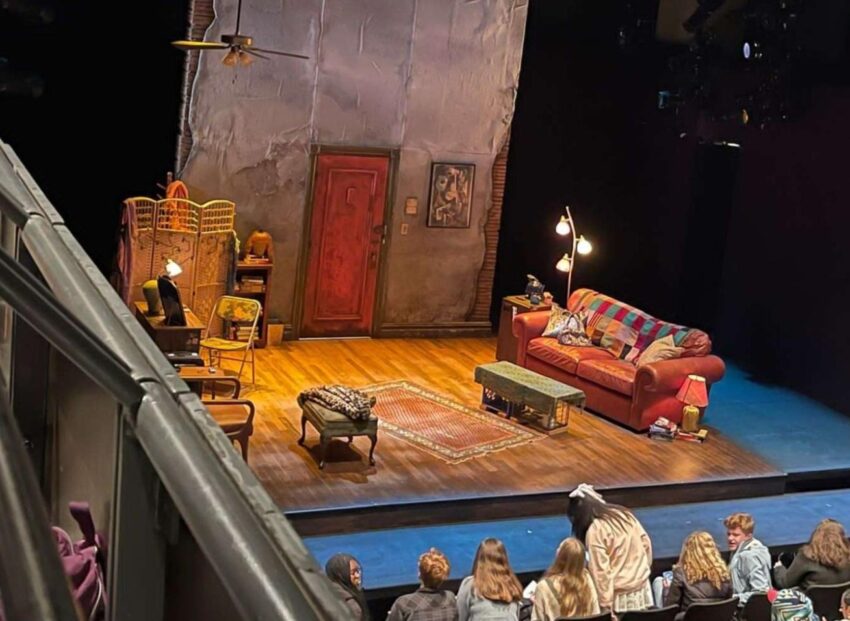Nina’s mother is dead and the only thing she has left to remember her by, a bundle of love letters written to Nina’s imprisoned father, is worth $10,000.
“Sunset Baby,” playing January to March at The Romulus Linney Courtyard Theatre, follows Nina’s struggle to decide if she’s willing to part with the letters at all — and if she is, who she will sell them to.
This is not the first time Dominique Morisseau’s play has been on stage. In the playbill, Morisseau includes a note to the audience that reflects on how much has changed since the play’s debut in 2013. She points out that the Ferguson unrest, and all that followed, hadn’t happened yet.
In the hands of seasoned director Steve Broadnax III, Morisseau’s play feels alive and relevant. Every scene takes place in the main room of a small New York apartment.
The makeshift coffee table is a couple of milk crates with a piece of wood balanced atop. A lamp sits on a precarious tumble of books. The building’s door-buzzer is constantly ringing. The set looks lived-in and comfortable, but it’s obvious that Nina has had to assemble her life from what little she could scrounge up.
When the play begins, Nina, played by Emmy-nominated actor Moses Ingram, is listening to Nina Simone’s “Feeling Good” and applying makeup. She’s dolled up in a shiny black dress, bright blue boots and a curly red wig, disguised as a sex worker to help her boyfriend rob strangers.
Nina is about to leave her apartment when her father, Kenyatta, played by Russell Hornsby, arrives. Kenyatta was imprisoned for most of Nina’s life due to his political activism. During their scenes together, the actors’ rich performances shine through even their estranged characters’ stilted dialogue.
“Nina,” Kenyatta says. Nina snaps, “Don’t you say my name like you’ve said it a hundred times.”
Scenes are divided by recordings of Kenyatta performed live offstage and played on a huge screen above the rest of the set. Kenyatta ruminates on fatherhood, activism, family and race.
The audience only understands what these monologues mean when Nina finds a camcorder and some tapes in her father’s bag near the end of the play. The recordings have all been for Nina.
